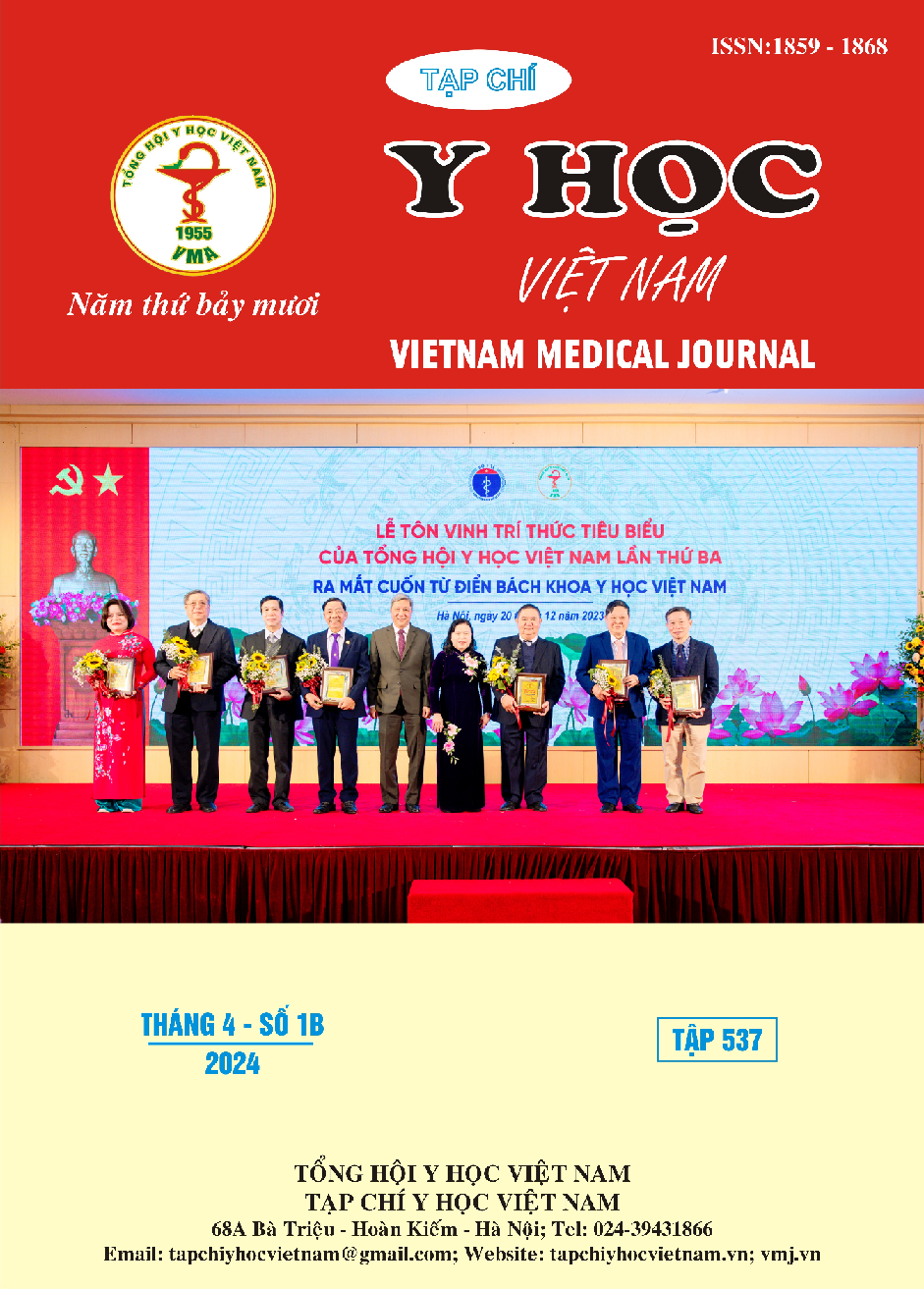NGHIÊN CỨU TÁC DỤNG ỨC CHẾ α-GLUCOSIDASE CỦA CURCUMIN PHÂN LẬP TỪ CỦ NGHỆ VÀNG (CURCUMA LONGA)
Nội dung chính của bài viết
Tóm tắt
Thân rễ hay củ Nghệ vàng trong Y học cổ truyền được gọi là Khương hoàng. Dược liệu này được sử dụng rộng rãi ở nhiều nước châu Á, trong đó có Việt nam, làm gia vị và thuốc. Thành phần hoạt chất chính trong Nghệ vàng là các diarylheptanoid, trong đó có curcumin. Nghiên cứu này nghiên cứu tác dụng ức chế α-glucosidase in vitro của curcumin. Kết quả cho thấy curcumin có khả năng ức chế mạnh α-glucosidase với IC50 7,73±0,62 µg/ml.
Chi tiết bài viết
Tài liệu tham khảo
1. Sultana, S., et al., Molecular targets for the management of cancer using Curcuma longa Linn. phytoconstituents: A Review. Biomedicine & Pharmacotherapy (2021), 135: p. 111078.
2. Feng, L.-P., et al., Two pairs of bisabolane sesquiterpenoid stereoisomers, bisacurone D-G, from the rhizome of Curcuma longa L. Fitoterapia (2020), 146: p. 104701.
3. Feng, Q., Chemical constituents of Curcuma longa I:bisabolane sesquiterpenes. Chinese Journal of Medicinal Chemistry (2007).
4. Tapsell, L.C., et al., Health benefits of herbs and spices: the past, the present, the future. Med J Aust (2006), 185(S4): p. S1-S24.
5. Hewlings, S.J. and D.S. Kalman, Curcumin: A Review of Its Effects on Human Health. Foods (2017), 6(10).
6. Khatun, M., et al., Assessment of the anti-oxidant, anti-inflammatory and anti-bacterial activities of different types of turmeric (Curcuma longa) powder in Bangladesh. Journal of Agriculture and Food Research (2021), 6: p. 100201.
7. Panda, V., et al., An Ayurvedic formulation of Emblica officinalis and Curcuma longa alleviates insulin resistance in diabetic rats: Involvement of curcuminoids and polyphenolics. Journal of Ayurveda and Integrative Medicine (2021), 12(3): p. 506-513.
8. Hakamata, W., et al., Design and screening strategies for alpha-glucosidase inhibitors based on enzymological information. Curr Top Med Chem (2009), 9(1): p. 3-12.
9. Lekshmi, P.C., et al., In vitro antidiabetic and inhibitory potential of turmeric (Curcuma longa L) rhizome against cellular and LDL oxidation and angiotensin converting enzyme. J Food Sci Technol (2014), 51(12): p. 3910-7.
10. Awin, T., et al., Identification of α-glucosidase inhibitory compounds from Curcuma mangga fractions. International Journal of Food Properties (2020), 23(1): p. 154-166.
2. Feng, L.-P., et al., Two pairs of bisabolane sesquiterpenoid stereoisomers, bisacurone D-G, from the rhizome of Curcuma longa L. Fitoterapia (2020), 146: p. 104701.
3. Feng, Q., Chemical constituents of Curcuma longa I:bisabolane sesquiterpenes. Chinese Journal of Medicinal Chemistry (2007).
4. Tapsell, L.C., et al., Health benefits of herbs and spices: the past, the present, the future. Med J Aust (2006), 185(S4): p. S1-S24.
5. Hewlings, S.J. and D.S. Kalman, Curcumin: A Review of Its Effects on Human Health. Foods (2017), 6(10).
6. Khatun, M., et al., Assessment of the anti-oxidant, anti-inflammatory and anti-bacterial activities of different types of turmeric (Curcuma longa) powder in Bangladesh. Journal of Agriculture and Food Research (2021), 6: p. 100201.
7. Panda, V., et al., An Ayurvedic formulation of Emblica officinalis and Curcuma longa alleviates insulin resistance in diabetic rats: Involvement of curcuminoids and polyphenolics. Journal of Ayurveda and Integrative Medicine (2021), 12(3): p. 506-513.
8. Hakamata, W., et al., Design and screening strategies for alpha-glucosidase inhibitors based on enzymological information. Curr Top Med Chem (2009), 9(1): p. 3-12.
9. Lekshmi, P.C., et al., In vitro antidiabetic and inhibitory potential of turmeric (Curcuma longa L) rhizome against cellular and LDL oxidation and angiotensin converting enzyme. J Food Sci Technol (2014), 51(12): p. 3910-7.
10. Awin, T., et al., Identification of α-glucosidase inhibitory compounds from Curcuma mangga fractions. International Journal of Food Properties (2020), 23(1): p. 154-166.


